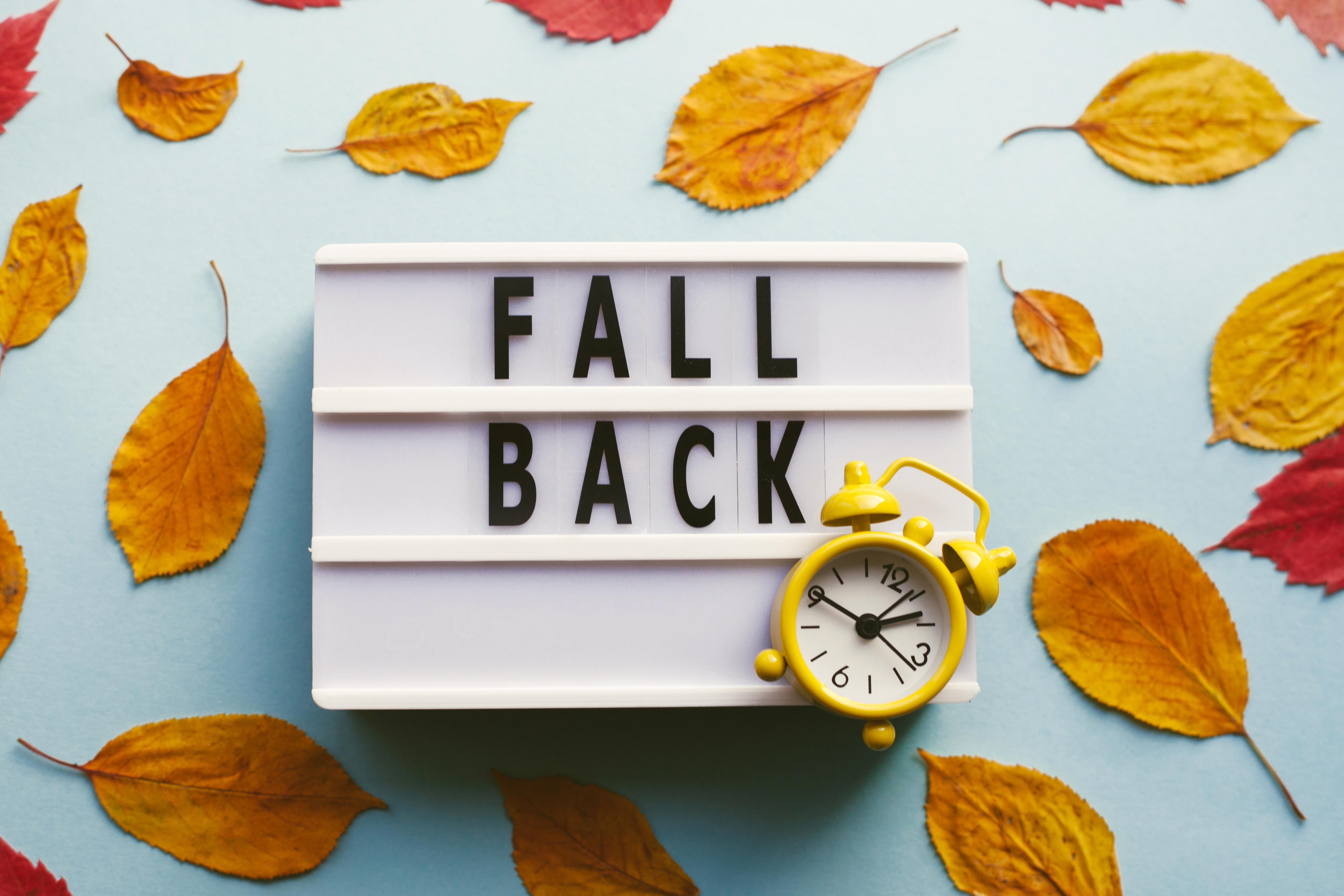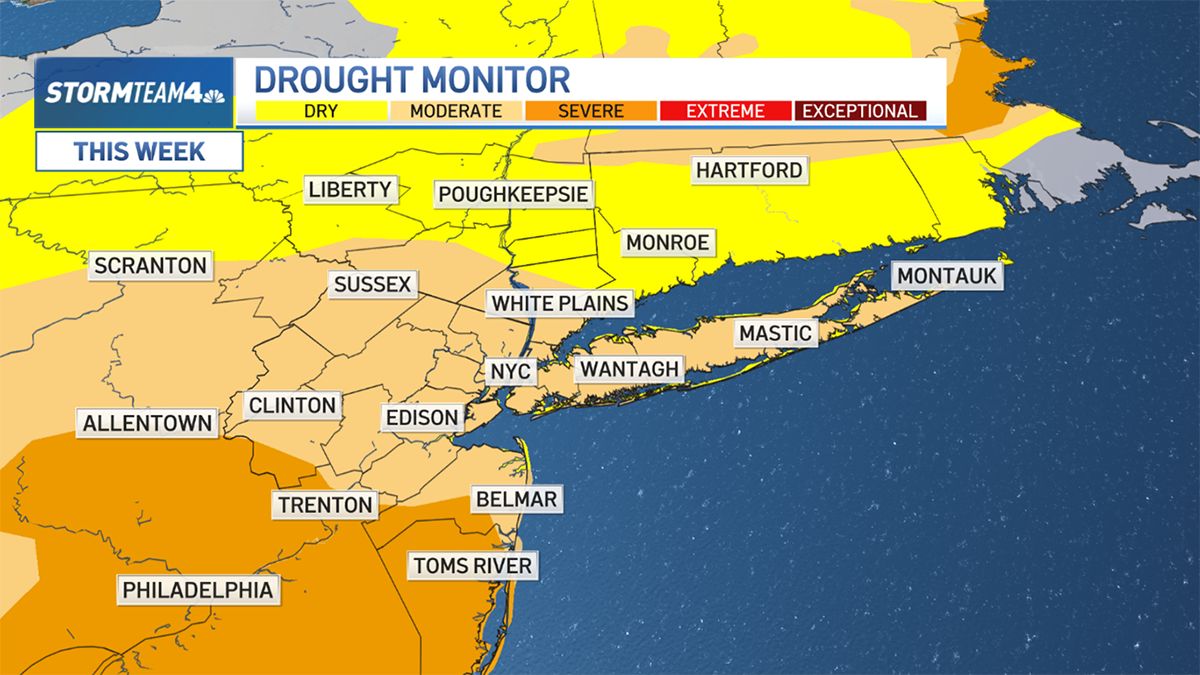What to Know
- NYC asked for state approval to shutdown all non-essential businesses and schools in 9 zip codes with COVID-19 cases above 3% for 7 consecutive days
- If approved, the rollback of previous reopening steps taken by the city would begin Wednesday, giving schools and business owners less than three days to prepare
- Indoor dining and gyms in 11 other zip codes under close watch would also close, Mayor de Blasio said Sunday
New York City Mayor Bill de Blasio says all non-essential businesses, public and private schools will close Wednesday in nine zip codes in Brooklyn and Queens, if approved by the state, after reporting coronavirus cases above a 3 percent positivity rate for at least seven consecutive days.
The closures would impact roughly half a million people in the following zip codes: 11691 (Edgemere/Far Rockaway), 11219 (Borough Park), 11223 (Gravesend/Homecrest), 11230 (Midwood), 11204 (Bensonhurt/Mapleton), 11210 (Flatlands/Midwood), 11229 (Gerritsen Beach/Homecrest/Sheepshead Bay), 11415 (Kew Gardens), 11367 (Kew Gardens Hills/Pomonok).
Within those nine zip codes, the mayor says approximately 100 public and 200 non-public schools would be closed. Students in the identified zip codes would be allowed to return to their schools on Monday and Tuesday to meet with teachers and plan for a school-wide return to remote learning.
"This was not an easy choice to make, and let me be clear: we haven’t seen any issues in these schools. We must, however, be proactive about the safety and health of New Yorkers," de Blasio said. "This is out of an abundance of caution and in coordination with a larger strategy that mirrors what we did successfully in the spring of a larger shutdown to make ensure we stopped the spread."
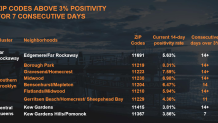
Schools in affected ZIP codes could theoretically switch all-remote for as little as two weeks or as many as four weeks, depending on success of efforts to lower positivity rate, contain the clusters, de Blasio says.
News
New York City’s teacher’s union had been demanding that the city close public schools in the handful of neighborhood where the virus was spreading fast. Michael Mulgew, president of the union, called the decision to close schools "one that helps protect our schools, our neighborhoods, and ultimately our city."
Indoor and outdoor dining services would be pulled from restaurants as well, with dining options reserved to take-out orders and delivery. Shuls and other house of worships, the mayor says, would not be closed but limited to individual worship, the mayor's deputy press secretary confirmed in a tweet.
De Blasio says Wednesday was selected to begin these drastic rollbacks in the city's reopening strategy to allow the impacted communities enough time to prepare for the expected closures.
Another 11 zip codes that the city says are cause for alarm but don't yet reach the 3 percent positivity threshold could also face their own setbacks. De Blasio says part of the city's proposal to the state includes closing indoor dining, gyms and pools in these 11 zip codes, but stopped short of extending closures to schools and other businesses deemed non-essential.
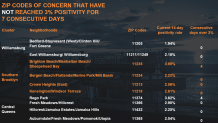
"We are waiting for the state's approval and support before we move forward," de Blasio reiterated during his Sunday announcement. "This is an action being taken out of an abundance of caution."
The decision to "rewind" part of the city's reopening comes days after hundreds of thousands of students returned to school for in-person instruction and restaurants in New York City were allowed to serve customers inside once again.
Over the past two weeks, the number of new cases of the virus has been rising in pockets of the city, predominantly in neighborhoods in Brooklyn and Queens that are home to the city’s large Orthodox Jewish population.
Nearly 1,100 people have tested positive in Brooklyn in just the last four days, according to state figures.
If the state approves de Blasio's proposed rollbacks, the mayor has set two potential scenarios to that would trigger communities' reopening steps.
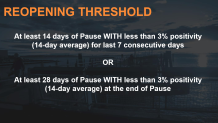
This announcement comes on the heels of Gov. Andrew Cuomo's instruction to send New York State Police to begin "aggressive" enforcement throughout the zip codes reporting the highest rates of positivity for the coronavirus.
Citing a lack of action from local governments, the New York governor told reporters on a conference call Sunday the time for education is over.
"We are putting together a task force... and we will be doing targeted enforcement in each of these clusters," he said. "But it's the same thing we did with bars and restaurants which was very effective. It will be targeted enforcement. It will not be public education, we are past that point."
The collection of 20 zip codes identified by state health officials struggling to contain recent outbreaks had a positivity rate of 4.8 percent yesterday, Cuomo said. The percentage is down slightly from the day before, which the state reported was 5.2 percent, but the governor said weekend data "can be a little off."
New York performed roughly 110,000 virus tests Saturday following a record-high 134,000 tests the day prior.
"Local businesses that are in violation of the law will be fined and can be closed, just like the bars and restaurants. If there are businesses violating the gathering rules can be fined and they will be closed," Cuomo warned.
Daily Percentage of Positive Tests by New York Region
Gov. Andrew Cuomo breaks the state into 10 regions for testing purposes and tracks positivity rates to identify potential hotspots. Here's the latest tracking data by region and for the five boroughs. For the latest county-level results statewide, click here
Source: ny.gov

